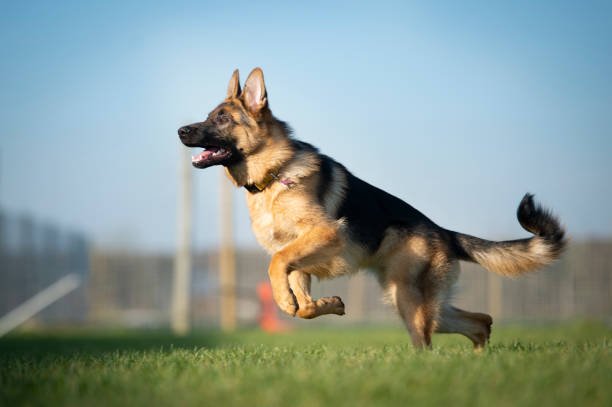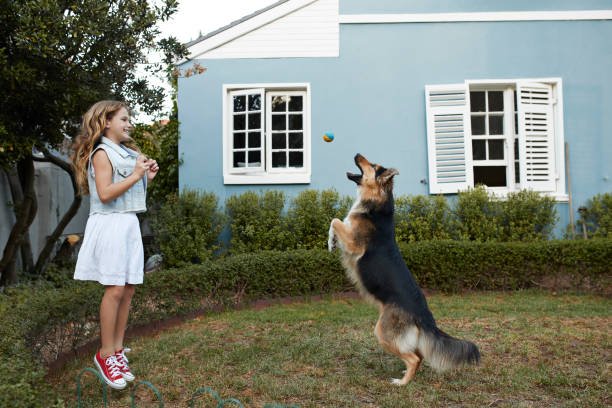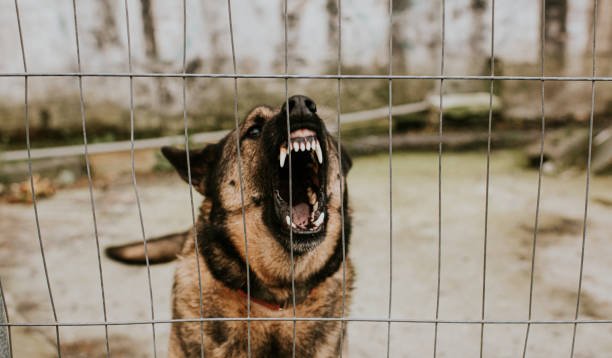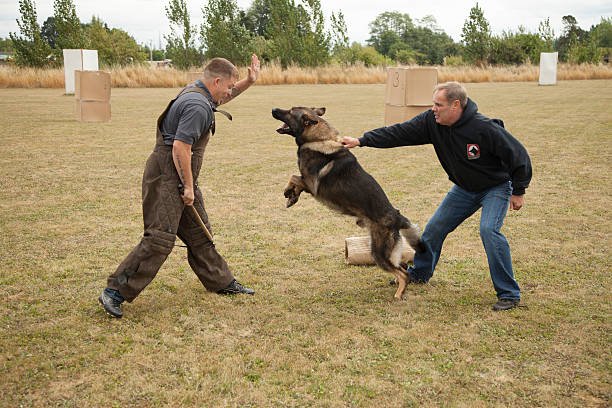Introduction
Imagine a loyal and intelligent companion, standing tall with a confident demeanor. That’s the German Shepherd, a breed known for its remarkable qualities.In this comprehensive guide, we will delve deep into the world of German Shepherd dogs. From their physical characteristics to their unique temperament, intelligence, and care requirements, we aim to provide you with an up-to-date resource that covers everything you need to know about this exceptional breed.
While there’s a wealth of information available about German Shepherds, it’s essential to have a reliable, comprehensive source at your disposal. This guide aims to bridge any gaps and provide you with the most current insights into the world of German Shepherd dogs.

German Shepherd Dog Breed Overview
Let’s start by building a detailed table that covers various aspects of the German Shepherd breed:
| Field | Information |
|---|---|
| Height | Varies between 22 to 26 inches |
| Weight | Typically 50 to 90 pounds |
| Life Span | 9 to 13 years |
| Good with | Family and children |
| Temperament | Intelligent, loyal, and alert |
| Intelligence | Exceptionally intelligent |
| Shedding Amount | Moderate to heavy |
| Grooming | Regular brushing and grooming |
| Exercise Needs | High |
| Energy Level | Very high |
| Barking Level | Moderate |
| Drool Amount | Minimal |
| Coat Length/Texture | Double coat with dense fur |
| Colors | Black and tan, sable, solid black, and more |
| Patterns | Saddleback, blanket, bicolor, and solid |
Now that we have a snapshot of the German Shepherd’s physical characteristics, let’s dive deeper into what makes this breed truly exceptional.
Physical Characteristics
German Shepherds are well-known for their striking appearance. They stand at a medium to large size with a strong, athletic build. Their erect ears and expressive eyes give them an alert and intelligent look. The breed’s double coat provides insulation and protection, with various color options including black and tan, sable, and solid black.

Temperament and Intelligence
One of the defining traits of German Shepherds is their intelligence. They are quick learners and excel in various roles, from working as police or search and rescue dogs to being loyal family companions. Their loyalty and protective nature make them excellent guard dogs. However, they require early socialization and training to ensure a well-rounded temperament.
Care and Maintenance
German Shepherds are active dogs that thrive on physical and mental stimulation. Their exercise needs are high, and they enjoy activities like agility training and fetch. Regular grooming is essential to manage their shedding, especially during seasonal changes. Their intelligence also means they require mental stimulation, such as puzzle toys and training exercises.
Conclusion
This introduction provides a glimpse into the world of German Shepherd dogs. In the sections to follow, we will explore each aspect of this breed in greater detail, ensuring that you have all the information you need to understand, care for, and appreciate these remarkable dogs. From their history to training tips and health considerations, this comprehensive guide will be your go-to resource for all things German Shepherd.
German Shepherd Breed History and Origin
Exploring Their Roots
The history of the German Shepherd breed is a fascinating journey through time, showcasing the development of a remarkable canine companion. To truly understand these intelligent and loyal dogs, let’s delve into their historical origins.
Historical Development
The German Shepherd, or “Deutscher Schäferhund” in its native tongue, has a relatively recent origin, dating back to the late 19th century. Captain Max von Stephanitz, a German cavalry officer, is credited with founding the breed. His vision was to create a versatile working dog, unmatched in intelligence and agility.
In pursuit of this vision, von Stephanitz began with the shepherding and farm dogs of Germany. He sought to standardize and refine the breed’s characteristics. In 1899, the Captain registered a dog named Horand von Grafrath as the first German Shepherd in the newly established breed registry. Horand became the foundation of the breed, and his descendants played a pivotal role in shaping the modern German Shepherd.
Breeds That Played a Role
The German Shepherd’s ancestry can be traced to various herding and working breeds native to Germany. Some of the key contributors to the breed’s development include:
- Flock and Herding Dogs: The German Shepherd’s early ancestors were bred for their herding abilities, and traits from these dogs are still evident in the breed’s strong work ethic and protective instincts.
- Wolf Heritage: While not a direct ancestor, there is some speculation that German Shepherds were selectively bred to retain certain wolf-like qualities, such as intelligence, loyalty, and a keen sense of smell.
- Local Varieties: Various regional German dogs, such as the Thuringian Shepherd and Württemberg Sheepdog, contributed to the breed’s genetic makeup.
- Military and Police Dogs: During World War I and World War II, German Shepherds gained prominence as military and police dogs due to their unmatched intelligence and trainability.
- Utility and Versatility: The breed was carefully selected for its utility in various roles, from herding to guarding and even search and rescue.
Notable Traits
The German Shepherd breed is distinguished by several remarkable traits and features that set it apart in the annals of canine history.
Versatility
One of the most striking qualities of German Shepherds is their versatility. These dogs are true all-rounders, excelling in a wide range of roles. They are not just exceptional herders but also skilled in obedience, agility, and protection work. Their adaptability and quick learning ability make them invaluable in various professional fields.
Intelligence
German Shepherds consistently rank among the most intelligent dog breeds. Their ability to understand and execute complex commands sets them apart. This intelligence, combined with their unwavering loyalty, makes them prized choices for police, military, and search and rescue work.
Loyalty and Protective Instincts
German Shepherds are renowned for their unwavering loyalty to their owners and families. This loyalty extends to a strong protective instinct, making them natural guardians. They will stand by your side, ready to defend when needed, while remaining gentle and affectionate with their loved ones.
Relevance of Origin
Understanding the origin of the German Shepherd breed is crucial to appreciating its characteristics today. The breed’s history as a herding and working dog has left an indelible mark on its personality. The traits developed for herding and protection in the past continue to shine through in modern German Shepherds.
Their intelligence and loyalty, honed over generations, make them highly trainable and adaptable companions. This breed’s origin story also highlights the importance of responsible breeding practices to maintain the breed’s integrity and ensure that these remarkable dogs continue to thrive.
In the next section, we will explore the physical attributes of the German Shepherd, providing detailed insights into their appearance and unique features.
Understanding the German Shepherd Breed’s Traits

Physical Characteristics
To truly appreciate the German Shepherd breed, it’s essential to understand their physical attributes, which contribute to their distinctive appearance and capabilities.
Size
German Shepherds are a medium to large breed, known for their strong and well-proportioned bodies. On average, they stand between 22 to 26 inches at the shoulder. Adult males typically weigh between 65 to 90 pounds, while females generally weigh between 50 to 70 pounds. These dimensions contribute to their agility and strength, making them ideal working dogs.
Coat Type and Colors
German Shepherds have a double coat, consisting of a dense, insulating undercoat and a straight, harsh outer coat. The coat serves to protect them from various weather conditions, including rain and cold. Their coat colors can vary but commonly include:
- Black and Tan: Perhaps the most iconic coloration, with a black saddle and tan markings on their legs, face, and chest.
- Sable: This coloration features a range of shades from light tan to black, creating a beautiful gradient effect.
- Solid Black: Some German Shepherds are entirely black, a striking and less common coloration.
- Bicolor: This pattern typically consists of a black body with tan markings on specific areas, creating a striking contrast.
Distinguishing Features
German Shepherds possess several distinguishing features that contribute to their unique appearance. These include:
- Erect Ears: German Shepherds have upright ears that are expressive and highly mobile, allowing them to capture sounds and emotions effectively.
- Intelligent Eyes: Their eyes are typically brown and convey intelligence and alertness. Their gaze is intense, reflecting their sharp minds.
- Strong Back: German Shepherds have a strong and straight back, which allows them to maintain an agile and balanced posture during various activities.
Temperament Overview
Understanding the temperament of German Shepherds is crucial, as it helps determine their suitability as family pets and their compatibility with other pets and children.
Suitability as Family Pets
German Shepherds can be excellent family pets when properly trained and socialized from an early age. They are loyal and protective, making them natural guardians for children. However, their high energy levels and strong protective instincts mean they need active and engaged families.

Personality Traits
- Loyal: German Shepherds are known for their unwavering loyalty to their owners. They form strong bonds and will go to great lengths to protect and please their human family members.
- Intelligent: These dogs rank high in intelligence tests. They are quick learners and thrive when mentally stimulated. However, their intelligence can lead to boredom if not engaged in activities or training.
- Protective: German Shepherds are inherently protective, which can be an asset in keeping your family safe. However, early socialization is vital to ensure they are not overly aggressive or anxious around strangers.
Compatibility with Other Pets
While German Shepherds can coexist peacefully with other pets, early socialization is essential to ensure they develop positive relationships. They may exhibit herding tendencies, so supervision may be needed with smaller pets.
Safety with Children
German Shepherds are generally good with children, thanks to their protective nature and gentle disposition when raised in a loving environment. However, they can be exuberant and may unintentionally knock over small children, so supervision during playtime is advisable.
Environment Needs
Understanding the environmental needs of German Shepherds is crucial to ensure they settle well into your home environment.
Space Requirements
German Shepherds are active dogs that need space to move and play. They thrive in homes with fenced yards where they can run and burn off energy. Apartment living is possible if they receive daily exercise and mental stimulation.
Temperature Sensitivity
These dogs have a double coat that provides insulation in both hot and cold weather. However, they may be sensitive to extreme temperatures. Provide shade and fresh water in hot weather, and consider a coat or jacket in cold climates.
Training and Socialization
German Shepherds are highly trainable due to their intelligence and eagerness to please. However, consistent and positive reinforcement training methods work best with this breed. Start training and socialization early to ensure they grow into well-behaved and confident dogs.
Trainability
German Shepherds excel in obedience training and can learn complex commands quickly. Their problem-solving abilities and focus make them a top choice for various canine sports and working roles.

Socialization
Early socialization is critical to prevent behavioral issues. Expose them to various people, animals, and environments to help them become well-adjusted and confident adults. Proper socialization can also minimize their protective instincts toward strangers.
In the next section, we will explore the care and maintenance requirements of German Shepherds, including grooming, exercise, and dietary needs.
Health Considerations and Care for German Shepherds
Introduction
Ensuring the health and well-being of your German Shepherd is paramount to enjoying a long and fulfilling companionship. In this section, we’ll explore various aspects of health and care for the German Shepherd breed, from common health issues to dietary needs, exercise, grooming, and promoting longevity.
Common Health Issues
German Shepherds, like all breeds, can be prone to certain health issues. Being aware of these potential concerns and proactive in their management is key to keeping your canine friend healthy.
Hip Dysplasia
Hip dysplasia is a common orthopedic issue in German Shepherds. It’s a hereditary condition where the hip joint doesn’t develop correctly, leading to pain and mobility problems. Regular veterinary check-ups and X-rays can help diagnose and manage this condition.
Elbow Dysplasia
Similar to hip dysplasia, elbow dysplasia affects the joints in the front legs. It can cause lameness and discomfort. Proper nutrition, weight management, and controlled exercise can help mitigate the risk.
Bloat (Gastric Dilatation-Volvulus)
Bloat is a life-threatening condition characterized by the stomach filling with gas and twisting. It’s more common in deep-chested breeds like German Shepherds. Feeding smaller, frequent meals, and avoiding vigorous exercise after meals can help reduce the risk.
Degenerative Myelopathy
This neurological disease affects the spinal cord and can lead to paralysis. While there’s no cure, early detection and supportive care can improve the quality of life for affected dogs.
Exocrine Pancreatic Insufficiency (EPI)
EPI is a condition where the pancreas fails to produce digestive enzymes. It can result in malnutrition and weight loss. Treatment involves enzyme replacement therapy and dietary adjustments.
Lifespan and Longevity
German Shepherds typically have a lifespan of 9 to 13 years. To promote a longer and healthier life for your furry friend, consider the following tips:
Regular Veterinary Check-ups
Routine vet visits are crucial for early detection of health issues. Vaccinations, preventive medications, and dental care should be part of the regular health regimen.
Healthy Diet and Weight Management
Feed your German Shepherd a balanced diet with high-quality dog food. Pay attention to portion control and avoid overfeeding, as obesity can lead to various health problems.
Exercise and Mental Stimulation
German Shepherds are active dogs that need both physical and mental exercise. Regular walks, playtime, and engaging toys can keep them mentally and physically fit.
Stress Reduction
Reducing stress is vital for your dog’s well-being. Provide a safe and loving environment, avoid excessive crating, and ensure they have ample opportunities for social interaction.
Dental Care
Oral health is often overlooked but essential. Regular tooth brushing and dental treats can help prevent dental issues that can affect overall health.
Diet and Nutrition
Proper nutrition is the cornerstone of a healthy German Shepherd. Understanding their dietary needs, portion control, and feeding schedule is crucial.
Dietary Needs
German Shepherds thrive on a diet rich in high-quality proteins. Look for dog food with meat as the primary ingredient. Avoid excessive treats and table scraps, as they can lead to weight gain.
Portion Control
Determine the appropriate portion size based on your dog’s age, activity level, and weight. Consult your veterinarian for guidance if you’re unsure.
Feeding Schedule
Establish a regular feeding schedule to help with digestion and prevent overeating. Most adult German Shepherds do well with two meals a day.
Exercise and Activity
German Shepherds are active and intelligent dogs that require ample exercise and mental stimulation to stay happy and healthy.
Daily Exercise
Aim for at least 60 to 90 minutes of exercise each day. This can include brisk walks, playtime in the yard, and mentally stimulating activities like puzzle toys and obedience training.
Mental Stimulation
German Shepherds excel in tasks that challenge their minds. Consider activities like agility training, scent work, or obedience training to keep them engaged.
Socialization
Regular socialization with other dogs and people is essential to prevent behavioral issues. Early exposure to different environments and situations can help your German Shepherd become a well-adjusted and confident companion.
Grooming and Maintenance
Proper grooming and maintenance practices are vital to keep your German Shepherd looking and feeling their best.
Coat Care
German Shepherds have a double coat that sheds throughout the year. Regular brushing, at least a few times a week, can help manage shedding and keep their coat in good condition.
Ear and Eye Cleaning
Check your dog’s ears and eyes regularly for signs of infection or irritation. Clean them as needed, using a veterinarian-recommended solution.
Dental Care
Maintaining good oral hygiene is crucial for overall health. Brush your dog’s teeth regularly and provide dental chews or toys to help keep their teeth clean.
Shedding
German Shepherds shed moderately year-round, with heavier shedding during seasonal changes. Invest in a good-quality vacuum cleaner and consider using a deshedding tool to manage loose fur.
By following these guidelines for health and care, you can ensure that your German Shepherd enjoys a long, happy, and healthy life as a cherished member of your family.
Choosing and Adopting a German Shepherd Dog Breed
Introduction
Adopting a German Shepherd can be a rewarding experience for both you and your new furry companion. However, it’s crucial to understand the responsibilities and considerations that come with bringing this breed into your life. In this section, we will explore the reasons for adopting a German Shepherd, how to prepare for adoption, the adoption process, and ethical considerations related to breeding.
Reasons for Adoption
Benefits of Adopting a German Shepherd
Adopting a German Shepherd breed can be a deeply fulfilling choice for several reasons:
- Rescue and Second Chances: By adopting from a rescue organization or shelter, you provide a loving home to a dog in need. Many German Shepherds are looking for forever homes due to unforeseen circumstances, and your adoption can give them a second chance at a happy life.
- Temperament and Personality: German Shepherds are known for their loyalty, intelligence, and protective nature. When you adopt, you can get to know the individual dog’s personality and find a perfect match for your family.
- Health Benefits: Adopted dogs often come spayed/neutered and with initial vaccinations, reducing your immediate veterinary costs.
- Reduced Demand for Breeding: By adopting, you contribute to reducing the demand for breeding and discourage puppy mills and unethical breeding practices.
- Companionship: German Shepherds make excellent companions. Their loyalty and love will enrich your life and create a strong bond between you and your new pet.
Research and Preparation
Before adopting a German Shepherd, thorough research and preparation are essential to ensure a smooth transition for both you and your new dog.
Understanding Breed-Specific Needs
German Shepherds have unique needs, including:
- Exercise: They require daily physical activity to stay healthy and happy. Plan for long walks, playtime, and mental stimulation.
- Training: German Shepherds are intelligent and thrive on training. Be prepared to invest time in obedience training and socialization.
- Space: They benefit from a home with a yard or access to open spaces.
- Socialization: Early socialization is crucial to ensure they are well-adjusted around people and other animals.

Financial Responsibilities
Owning a dog comes with financial responsibilities, including:
- Initial Adoption Costs: Adoption fees can vary, but they typically cover vaccinations, spaying/neutering, and microchipping.
- Food and Supplies: High-quality dog food, grooming supplies, toys, and other essentials are ongoing expenses.
- Veterinary Care: Regular check-ups and unexpected medical expenses can add up. Consider pet insurance for peace of mind.
- Training and Socialization: Training classes and socialization activities may require additional investments.
Adoption Process
When you’re ready to adopt a German Shepherd, follow these steps to ensure a successful adoption experience:
1. Research Local Rescues and Shelters
Identify reputable rescue organizations, shelters, or breed-specific rescues in your area. Look for those with a good reputation for ethical practices and animal welfare.
2. Complete an Adoption Application
Most rescues and shelters require potential adopters to fill out an adoption application. Be prepared to provide information about your living situation, experience with dogs, and why you want to adopt a German Shepherd.
3. Home Visit and Interviews
Many organizations conduct home visits to assess your living environment and ensure it’s suitable for a German Shepherd. They may also interview you to understand your expectations and lifestyle.
4. Adoption Fees
Expect to pay an adoption fee, which helps cover the costs of vaccinations, spaying/neutering, and other initial care. The fee varies depending on the organization.
5. Adoption Agreement
Review and sign an adoption agreement. This document outlines your responsibilities as a pet owner and may include clauses regarding the care and treatment of the dog.
6. Bringing Your New Dog Home
Prepare your home for your new German Shepherd’s arrival. Have all necessary supplies ready, including food, bowls, a collar, leash, and a secure area for your dog to acclimate.
Breeding and Ethical Considerations
While adoption is a wonderful option, responsible breeding practices are also important to maintain the integrity of the German Shepherd breed.
Responsible Breeding
If you choose to purchase a German Shepherd from a breeder, do thorough research to find a reputable breeder who prioritizes the health and well-being of their dogs. Responsible breeders:
- Conduct health screenings for genetic issues.
- Promote genetic diversity to reduce the risk of hereditary conditions.
- Provide a clean and safe environment for their dogs.
- Offer socialization and early training for puppies.
Avoid Supporting Puppy Mills
Avoid purchasing from puppy mills or backyard breeders. These operations prioritize profit over the well-being of the dogs and often engage in unethical breeding practices.
Consider Adoption First
Before deciding on a breeder, consider adoption as your first choice. There are many German Shepherds in need of loving homes, and adopting from a rescue organization can be a fulfilling way to give a dog a second chance at life.
In conclusion, adopting a German Shepherd can be a life-changing experience for both you and your new four-legged friend. By understanding their unique needs, preparing for adoption, following the proper adoption process, and considering ethical breeding practices, you can provide a loving and secure home for your German Shepherd while promoting responsible pet ownership.
Popularity and Recognition of the German Shepherd Breed
Introduction
The German Shepherd is a breed that has captured the hearts of dog lovers around the world. In this section, we will explore the breed’s current popularity, its recognition by kennel clubs and breed organizations, and notable varieties or subtypes within the German Shepherd breed.
Current Popularity
A Beloved Breed
The German Shepherd is undeniably one of the most popular and beloved dog breeds globally. Their combination of intelligence, loyalty, and versatility has made them a favorite among dog enthusiasts. But what does their current popularity look like?
Trends in Ownership
German Shepherds have consistently ranked among the top dog breeds in terms of popularity in various countries. These trends in ownership can be attributed to several factors:
- Loyal Companions: German Shepherds are known for their unwavering loyalty and strong bonds with their owners, making them excellent family pets.
- Versatile Abilities: Their intelligence and versatility have led to their widespread use in various roles, from working dogs in law enforcement and search and rescue to service dogs and loyal companions.
- Positive Media Exposure: Movies, television, and news stories often feature heroic German Shepherds, further increasing their popularity.
- Active Lifestyle Companions: They are well-suited for active individuals and families who enjoy outdoor activities and exercise.
While the German Shepherd’s popularity has remained steady over the years, it’s essential to remember that owning this breed comes with responsibilities. Their unique needs, including exercise, training, and socialization, require commitment and dedication from their owners.
Breed Recognition
Kennel Club Recognition
German Shepherds are widely recognized by kennel clubs and breed organizations around the world. One of the most prominent organizations that officially recognizes the breed is the American Kennel Club (AKC). The AKC, along with other kennel clubs, sets breed standards and guidelines for responsible breeding practices.
The AKC Recognition
The American Kennel Club officially recognized the German Shepherd breed in 1908. Since then, they have played an integral role in establishing and maintaining breed standards. These standards encompass various aspects of the breed, including size, temperament, coat color, and conformation.
The AKC also hosts German Shepherd dog shows and competitions, allowing breed enthusiasts to showcase their dogs’ skills, obedience, and adherence to breed standards.
International Recognition
German Shepherds are not limited to the United States. They have received recognition and acclaim from kennel clubs and breed organizations worldwide. These organizations provide a platform for breeders, owners, and enthusiasts to connect, share knowledge, and celebrate the breed.
Notable Breed Varieties
Within the German Shepherd breed, there are distinct varieties or subtypes that may exhibit slight differences in appearance or temperament. Let’s explore a few notable ones:
American German Shepherds
American German Shepherds are known for their versatility and adaptability. They often have a more sloped back compared to their European counterparts. This difference in conformation can lead to variations in movement and agility. American German Shepherds are commonly seen in various working roles, including search and rescue, police work, and as service dogs.
European German Shepherds
European German Shepherds are often bred for working purposes and tend to adhere more closely to the original German breed standards. They typically have a straighter back and a slightly different appearance compared to their American counterparts. European lines are highly regarded for their working abilities and are commonly used in police and military work.
Show Line German Shepherds
Show line German Shepherds are bred with a focus on conforming to breed standards for dog shows and competitions. They often have a more pronounced and angulated hindquarter, a longer coat, and a calmer temperament compared to working lines. Show line German Shepherds excel in conformation and obedience events.
Working Line German Shepherds
Working line German Shepherds are bred for their working abilities and are often used in roles like police work, search and rescue, and protection. They tend to have a more intense drive, higher energy levels, and a stronger work ethic compared to show lines. Their conformation may differ slightly, with a straighter back.
Each of these German Shepherd varieties has its unique traits and characteristics, making them suitable for different purposes and preferences. When choosing a German Shepherd, it’s essential to consider your intended use for the dog and find a breeder or rescue organization that specializes in the variety that aligns with your needs.
In conclusion, the German Shepherd breed continues to enjoy immense popularity worldwide, thanks to its exceptional qualities and versatility. The breed’s recognition by kennel clubs and the existence of various notable varieties allow prospective owners to find a German Shepherd that suits their lifestyle and preferences. Whether you’re seeking a loyal family companion, a working partner, or a show dog, the German Shepherd breed offers a wide range of choices to fit your needs.
Exercise and Activity Recommendations for German Shepherds
Introduction
German Shepherds are known for their high energy levels and active nature. To ensure the health and well-being of your German Shepherd, it’s essential to provide them with the right amount and type of exercise. In this section, we will provide a detailed exercise plan tailored to German Shepherds, including various types of activities, duration, and frequency. Additionally, we will offer guidelines for their nutrition and feeding to keep them in top shape.
Exercise Plan
Types of Exercise
German Shepherds benefit from a mix of physical and mental exercise. Here are various types of activities to incorporate into your German Shepherd’s exercise routine:
- Outdoor Playtime: Engage in interactive games such as fetch, tug-of-war, or frisbee in a secure and safe area.
- Daily Walks: Take your German Shepherd for daily walks to provide them with physical exercise and opportunities for mental stimulation. Aim for at least 60 to 90 minutes of walking per day.
- Agility Training: German Shepherds excel in agility training. Set up an agility course with tunnels, jumps, and weave poles to challenge their agility and problem-solving skills.
- Obedience Training: Obedience training sessions not only provide mental exercise but also reinforce their training and socialization.
- Hiking: If you enjoy the outdoors, take your German Shepherd hiking on trails. This allows them to explore new environments and expend their energy.
- Swimming: Many German Shepherds enjoy swimming. If you have access to a safe water source, consider adding swimming sessions to their routine.
- Running: For active owners, jogging or running with your German Shepherd can be an excellent way to keep both of you in shape.

Duration and Frequency
The duration and frequency of exercise can vary based on your dog’s age, health, and individual energy level. However, here are some general guidelines:
- Puppies (under 6 months): Shorter, more frequent play sessions with a focus on socialization. Aim for three to four 15-20 minute sessions per day.
- Adults (6 months to 8 years): A mix of daily walks (60-90 minutes) and additional playtime or training sessions. Four to six days a week of exercise is recommended.
- Seniors (8 years and older): Reduce the intensity and duration of exercise, focusing on shorter, gentler walks and low-impact activities. Consult with your vet for specific recommendations.
- High-Energy Individuals: Some German Shepherds have higher energy levels and may require more exercise. Be attentive to their needs and adjust accordingly.
Remember that mental exercise is just as important as physical exercise for German Shepherds. Incorporate training, puzzles, and interactive toys to keep their minds engaged.
Nutrition and Feeding Guidelines
Dietary Recommendations
Proper nutrition is crucial to support your German Shepherd’s overall health and energy levels. Consider the following dietary recommendations:
- High-Quality Dog Food: Choose a premium dog food that lists meat as the primary ingredient. Look for options formulated for large breeds.
- Protein: German Shepherds benefit from a diet with a moderate to high protein content (around 20-30%). Protein supports their muscle development and overall health.
- Fat: A moderate amount of healthy fats (around 10-15%) helps maintain their energy levels and a healthy coat.
- Carbohydrates: Whole grains and complex carbohydrates can provide sustained energy. Aim for a balanced mix of carbohydrates in their diet.
- Fruits and Vegetables: Incorporate fruits and vegetables into their diet for added vitamins, minerals, and fiber.
Portion Control
Determining the right portion size for your German Shepherd is essential to maintain a healthy weight. Factors like age, activity level, and metabolism play a role in portion control. Here are some guidelines:
- Puppies: Follow the feeding recommendations on the puppy food label, dividing the daily portion into multiple meals. Adjust as they grow.
- Adults: Most adult German Shepherds do well with two meals a day. Divide the daily portion into these two meals to prevent overeating.
- Seniors: Older dogs may require fewer calories. Consult with your veterinarian to determine the appropriate portion size.
- Active vs. Less Active: Adjust portion sizes based on your dog’s activity level. More active dogs may require larger portions, while less active dogs need fewer calories to avoid weight gain.
Dietary Restrictions and Allergies
It’s essential to be aware of any dietary restrictions or allergies that your German Shepherd may have. Some dogs may be sensitive or allergic to certain ingredients, such as grains or specific proteins. Monitor your dog for any signs of digestive issues or allergies, such as diarrhea, skin problems, or excessive itching. If you suspect food allergies or sensitivities, consult your veterinarian to determine the best diet for your dog.
Feeding Schedule
Establishing a regular feeding schedule helps maintain consistency and aids in digestion. Here’s a general guideline for feeding times:
- Morning: Feed your German Shepherd their first meal in the morning, allowing them to have energy for their daily activities.
- Evening: Offer their second meal in the evening, allowing them to digest their food before bedtime.
- Water: Ensure your dog has access to fresh water throughout the day. Hydration is essential, especially after exercise.
- Treats: If you offer treats during training or as rewards, factor these into your dog’s daily calorie intake to prevent overfeeding.
In conclusion, providing your German Shepherd with the right exercise and nutrition is essential for their health, happiness, and longevity. Tailor their exercise routine to their age and energy level, offering a mix of physical and mental activities. Select high-quality dog food, control portion sizes, and be aware of any dietary restrictions or allergies. By following these guidelines, you can ensure that your German Shepherd maintains a healthy and active lifestyle.
Socialization and Training Tips for German Shepherds
Introduction
Socialization and training are essential aspects of raising a well-behaved and happy German Shepherd. Due to their intelligence and loyal nature, German Shepherds respond well to training, but they also have unique characteristics that require specific approaches. In this section, we will provide breed-specific training tips and offer guidance on how to socialize your German Shepherd with other dogs and people.
Training Tips
Understanding Their Intelligence
German Shepherds are renowned for their intelligence and eagerness to learn. To make the most of their cognitive abilities, consider the following training tips:
- Consistency is Key: Establish clear and consistent rules from the beginning. German Shepherds thrive on routines, so a structured environment is essential for their development.
- Positive Reinforcement: Use positive reinforcement techniques such as treats, praise, and toys to reward desired behaviors. This approach will motivate your German Shepherd and strengthen the bond between you.
- Early Training: Start training and socialization early in your German Shepherd’s life, ideally when they are puppies. Early exposure to various experiences helps them become well-rounded adults.
- Obedience Training: Enroll your German Shepherd in obedience classes or work with a professional trainer. This breed excels in obedience training and can master advanced commands.
- Challenging Activities: Engage your German Shepherd’s mind with challenging activities like puzzle toys, agility training, and scent work. Mental stimulation is just as important as physical exercise for this breed.
- Socialization: Expose your German Shepherd to various environments, people, and animals to ensure they become well-adjusted and confident adults. Socialization helps prevent fearfulness and aggression.
- Patience and Persistence: Be patient and persistent during training. German Shepherds may test boundaries, but consistency and positive reinforcement will lead to success.
Socialization Tips
German Shepherds are naturally protective and can be reserved around strangers. Proper socialization is vital to ensure they are friendly and well-behaved around people and other dogs:
- Early Exposure: Start socializing your German Shepherd puppy as early as possible. Introduce them to various people, including children, and other dogs.
- Positive Experiences: Make sure that social interactions are positive and rewarding for your dog. Use treats and praise to reinforce good behavior during socialization.
- Diverse Environments: Take your German Shepherd to different environments, such as parks, urban areas, and rural settings. This exposure will help them adapt to various situations.
- Supervised Play: Allow your dog to interact with other dogs, but always supervise play to ensure safety. German Shepherds can play vigorously, so it’s essential to monitor their interactions.
- Training Classes: Enroll in training classes that include socialization components. These classes provide controlled environments for your dog to learn proper behavior around other dogs and people.
- Positive Associations: If your German Shepherd shows signs of fear or anxiety, work on creating positive associations with the situation or object. Use treats and gentle encouragement to build their confidence.
Common Behavioral Traits of German Shepherds
Introduction
German Shepherds are known for their loyalty, intelligence, and protective instincts. While they make fantastic companions, they also have specific behavioral traits that owners should be aware of. In this section, we will discuss common behavioral traits associated with the breed, both positive and challenging, and offer advice on managing and addressing any breed-specific behavior issues.
Positive Behavioral Traits
Loyalty
German Shepherds are incredibly loyal to their families. This loyalty is one of their most cherished traits, as they form deep bonds with their owners. They are known to be protective and will often go to great lengths to ensure the safety of their loved ones.
Intelligence
German Shepherds are highly intelligent dogs. They are quick learners and excel in obedience training and problem-solving tasks. Their intelligence makes them versatile and capable of taking on various roles, from working dogs to family pets.
Trainability
Due to their intelligence and eagerness to please, German Shepherds are highly trainable. They respond well to positive reinforcement training methods and thrive on mental stimulation. They can learn a wide range of commands and tasks, making them suitable for various roles, including search and rescue, police work, and therapy dog work.
Protective Instincts
German Shepherds have strong protective instincts, which can be an asset when it comes to guarding your home and family. They are vigilant and often make excellent watchdogs. Properly trained and socialized German Shepherds can differentiate between real threats and everyday situations.
Challenging Behavioral Traits
High Energy Levels
One of the most challenging aspects of owning a German Shepherd is their high energy levels. They require significant exercise and mental stimulation to prevent boredom and destructive behavior. If not adequately exercised, they may resort to chewing, digging, or excessive barking.
Independence
While their loyalty is a positive trait, it can also lead to independence. German Shepherds may attempt to assert themselves as pack leaders if not provided with clear guidance and boundaries. This can result in behavioral issues such as stubbornness or dominance.
Reserved Around Strangers
German Shepherds are naturally reserved around strangers. While this behavior is rooted in their protective instincts, it can lead to shyness or fearfulness if not properly socialized. Early and consistent socialization is essential to ensure they are confident and well-adjusted around people and other dogs.
Herding Instinct
Many German Shepherds retain their herding instincts, which can manifest in behaviors such as nipping or chasing. This can be problematic, especially if directed toward children or other pets. Training and redirecting this instinct are crucial.
Managing and Addressing Behavioral Issues
To manage and address behavioral issues in German Shepherds, consider the following strategies:
- Consistent Training: Provide consistent training and establish clear boundaries from a young age. Enroll in obedience classes if necessary.
- Exercise: Ensure your German Shepherd gets plenty of exercise and mental stimulation. Daily walks, playtime, and puzzle toys can help drain their energy.
- Socialization: Continue socializing your German Shepherd throughout their life to prevent fearfulness and aggression.
- Positive Reinforcement: Use positive reinforcement techniques to reward good behavior and redirect unwanted behavior.
- Professional Help: If you encounter severe behavioral issues, consider seeking the assistance of a professional dog trainer or behaviorist.
- Patience: Be patient and understanding. German Shepherds respond best to positive and patient training methods.
In conclusion, German Shepherds possess a unique combination of positive behavioral traits such as loyalty, intelligence, and trainability. However, they also have specific challenges, including high energy levels and protective instincts. By understanding and addressing these traits through proper training and socialization, you can ensure that your German Shepherd becomes a well-rounded and happy companion.
Personal Stories and Testimonials: The German Shepherd Experience
Introduction
In this section, we’ll delve into real-life stories and testimonials from owners of German Shepherds. These personal anecdotes provide valuable insights into the joys, challenges, and unique experiences that come with owning this remarkable breed. By sharing these stories, we hope to offer a human touch to the comprehensive guide on German Shepherds and provide practical insights for both potential and current owners.
Story 1: A Loyal Companion
Owner: Sarah
Sarah’s German Shepherd, Max, has been her faithful companion for the past seven years. Max came into her life as a rescue dog, a timid and anxious pup with a traumatic past. Through patience, training, and unwavering love, Max transformed into a confident and loving companion.

Sarah shares, “Max’s loyalty is unmatched. He’s not just a pet; he’s family. He’s incredibly protective and has saved me from potentially dangerous situations more than once. His intelligence and obedience make me proud every day.”
Key Takeaway: German Shepherds are known for their loyalty and protective instincts, making them excellent companions and watchdogs.
Story 2: From Playtime to Championships
Owner: Mark
Mark’s journey with his German Shepherd, Bella, began with playful antics in the backyard. They quickly discovered Bella’s passion for agility training. With dedication and countless hours of practice, Bella and Mark became a formidable team in agility competitions.

Mark reflects, “Bella’s boundless energy and love for agility brought us closer than I ever imagined. We’ve won numerous championships together, and her enthusiasm is infectious. It’s amazing how versatile and capable German Shepherds can be.”
Key Takeaway: German Shepherds thrive on mental and physical challenges. They excel in various activities, from agility to obedience.
Story 3: A Lifesaver in Uniform
Owner: Officer Rodriguez
Officer Rodriguez and his K-9 partner, Rex, have a bond forged in the line of duty. Rex is a highly trained German Shepherd police dog who has assisted in numerous apprehensions and searches.
Officer Rodriguez shares, “Rex is not just a partner; he’s my lifeline on the job. His courage and determination are unwavering. We’ve faced dangerous situations together, and I trust him with my life.”

Key Takeaway: German Shepherds are widely used in law enforcement and search and rescue due to their intelligence and bravery.
Story 4: A Loving Family Dog
Owner: Emily
Emily’s German Shepherd, Luna, is a beloved family member. Luna’s gentle nature makes her great with children, and her protective instincts provide peace of mind for the family.
Emily notes, “Luna has been with us since our kids were born. She’s incredibly patient with them and watches over them like a guardian angel. She’s more than just a pet; she’s a cherished member of our family.”

Key Takeaway: German Shepherds can be wonderful family dogs when properly trained and socialized, and their protective instincts make them natural guardians.
Story 5: Overcoming Challenges
Owner: David
David’s German Shepherd, Rocky, faced health challenges in his senior years. Despite arthritis and reduced mobility, Rocky’s spirit remained strong. With a carefully tailored diet, joint supplements, and regular vet visits, David ensured Rocky’s comfort and quality of life.
David reflects, “Rocky taught me about resilience and the bond between a dog and their owner. His unwavering spirit in the face of adversity was truly inspiring.”
Key Takeaway: German Shepherds, like all dogs, may face health challenges in their later years. Proper care and attention can greatly improve their quality of life.
Testimonial: A Community of German Shepherd Owners
Owner: Jennifer
Jennifer is part of a vibrant online community of German Shepherd owners. She shares, “Being part of this community has been invaluable. We exchange advice, support one another through challenges, and celebrate our dogs’ achievements. It’s a testament to the bond that German Shepherds create not only with their owners but with each other.”
Key Takeaway: The German Shepherd community is passionate and supportive, offering a wealth of knowledge and camaraderie for owners.
These personal stories and testimonials highlight the diversity of experiences that come with owning German Shepherds. From loyal companions to working partners and cherished family members, German Shepherds leave a lasting impact on the lives of their owners. Their intelligence, loyalty, and versatility make them a breed like no other, capable of forming deep connections and achieving remarkable feats. Whether you’re considering bringing a German Shepherd into your life or already have one as a companion, these stories serve as a testament to the unique and rewarding journey of being a German Shepherd owner.
Breed-Specific Accessories and Care Products for German Shepherds
Introduction
German Shepherds are unique dogs with specific needs and characteristics. To ensure their well-being and happiness, it’s essential to select accessories and care products that cater to their breed-specific requirements. In this section, we will recommend specific accessories and care products tailored to the needs of German Shepherds, from grooming tools to harnesses and toys.
Grooming Tools
1. Furminator Undercoat Tool
German Shepherds have a double coat that can shed profusely, especially during seasonal changes. The Furminator Undercoat Tool is specifically designed to remove loose hair and undercoat without harming the topcoat. Regular use of this tool can help reduce shedding and keep your German Shepherd’s coat healthy.
2. Slicker Brush
A slicker brush is excellent for removing tangles, mats, and loose fur. German Shepherds have a dense coat that can become tangled, so a good slicker brush is an essential grooming tool.
3. Nail Clippers
Regular nail maintenance is crucial for any dog breed, including German Shepherds. Opt for high-quality nail clippers designed for dogs to keep your dog’s nails at a healthy length.
Harnesses
4. No-Pull Harness
German Shepherds are strong dogs, and they can sometimes pull on their leash during walks. A no-pull harness is an excellent choice to prevent pulling and distribute pressure evenly. Look for a harness that provides comfort without restricting movement.
5. Tactical Harness
For German Shepherds involved in activities like search and rescue or police work, a tactical harness is a must. These harnesses are designed with durability and functionality in mind, featuring multiple attachment points for gear and accessories.
Toys
6. Interactive Puzzle Toys
German Shepherds are highly intelligent and need mental stimulation. Interactive puzzle toys challenge their problem-solving skills and keep them engaged. Look for toys that dispense treats as a reward for solving puzzles.
7. Tug-of-War Toys
German Shepherds love to play tug-of-war, and it’s an excellent way to burn off energy. Choose durable tug-of-war toys made from sturdy materials to withstand your dog’s strength.
Bedding and Crate Accessories
8. Orthopedic Dog Bed
German Shepherds are prone to hip and joint issues, especially as they age. Investing in an orthopedic dog bed with memory foam can provide comfort and support for their joints.
9. Crate Bed
If you use a crate for your German Shepherd, consider a crate bed that fits snugly inside. It adds an extra layer of comfort and encourages your dog to view the crate as a comfortable den.
Food and Water Bowls
10. Elevated Feeder
Many German Shepherds benefit from elevated feeders, which can help reduce strain on their neck and improve digestion. Choose an adjustable elevated feeder to find the right height for your dog.
Health and Wellness Products
11. Joint Supplements
As German Shepherds age, they may experience joint issues. Joint supplements containing glucosamine and chondroitin can help maintain joint health and mobility.
12. Dental Care Products
German Shepherds are prone to dental problems. Regular dental care is essential, and you can opt for dental chews, toothbrushes, and toothpaste designed for dogs.
Travel Accessories
13. Car Seat Cover
If you frequently travel with your German Shepherd, a car seat cover is a practical accessory. It protects your car’s interior from fur, dirt, and scratches.
14. Travel Water Bottle
Stay hydrated on the go with a travel water bottle designed for dogs. These bottles have a built-in bowl for easy drinking during outdoor adventures.
Training Aids
15. Training Treat Pouch
During training sessions, a treat pouch keeps treats easily accessible. Look for a pouch with multiple compartments to carry various treats and training tools.
16. Clicker
Clicker training can be highly effective for German Shepherds. A simple clicker helps mark desired behaviors during training sessions.
Safety Products
17. Reflective Gear
German Shepherds often enjoy outdoor activities during all times of the day. Reflective gear, such as collars, leashes, and vests, enhances visibility during evening walks or hikes.
18. Microchip and ID Tag
Ensure your German Shepherd’s safety by having them microchipped and wearing an ID tag with your contact information. This is essential in case they get lost.
Conclusion
Selecting the right accessories and care products for your German Shepherd can significantly enhance their quality of life. From grooming tools that keep their coat healthy to harnesses that make outdoor adventures enjoyable, there are many options tailored to their unique needs. Consider your dog’s age, activity level, and specific requirements when choosing these items to ensure their well-being and happiness. By providing your German Shepherd with the right accessories and care products, you can help them lead a healthy, active, and fulfilling life.
Frequently Asked Questions (FAQs) About the German Shepherd Breed
Introduction
As one of the most popular and versatile dog breeds, German Shepherds often generate numerous questions from potential and current owners. In this section, we will address ten common questions about the German Shepherd breed, covering topics that may not have been covered in the main sections of this comprehensive guide.
1. What is the Origin of the German Shepherd Breed?
Answer: The German Shepherd breed originated in Germany in the late 19th and early 20th centuries. They were initially bred for herding and guarding purposes but later gained fame as police and military dogs due to their intelligence, loyalty, and trainability.
2. Are German Shepherds Good with Children?
Answer: Yes, German Shepherds can be excellent family dogs when properly socialized and trained. They are often affectionate and protective of children, making them great companions for families. However, supervision is essential, especially with young children, to ensure safe interactions.
3. Do German Shepherds Get Along with Other Pets?
Answer: German Shepherds can get along with other pets, including cats and dogs, but early socialization is crucial. They have a natural herding instinct and may try to chase smaller animals. Proper introductions and training can help foster positive relationships with other pets.
4. How Much Exercise Does a German Shepherd Need?
Answer: German Shepherds are an active breed and require a significant amount of exercise. Ideally, they need at least 1-2 hours of physical activity per day, along with mental stimulation. Regular walks, playtime, and challenging activities like agility or obedience training are essential to keep them happy and healthy.
5. Are German Shepherds Prone to Health Issues?
Answer: Like all breeds, German Shepherds are prone to certain health issues. Common concerns include hip dysplasia, elbow dysplasia, bloat, and degenerative myelopathy. Regular vet check-ups, a healthy diet, and proper exercise can help mitigate these risks.
6. What is the Average Lifespan of a German Shepherd?
Answer: The average lifespan of a German Shepherd is around 9-13 years. Proper care, including a balanced diet, regular exercise, and preventive healthcare, can help extend their lifespan.
7. Do German Shepherds Shed a Lot?
Answer: Yes, German Shepherds are moderate to heavy shedders, especially during seasonal changes. Their double coat sheds year-round, so regular grooming and brushing are essential to manage shedding and maintain a healthy coat.
8. Are German Shepherds Easy to Train?
Answer: Yes, German Shepherds are known for their intelligence and trainability. They excel in obedience training and can learn a wide range of commands. However, consistent and positive reinforcement-based training is crucial to harness their potential fully.
9. What is the Difference Between American and European German Shepherds?
Answer: American and European German Shepherds have some differences in appearance and temperament. European German Shepherds are often considered more traditional, with a focus on working abilities. American German Shepherds are sometimes bred with an emphasis on show conformation. Temperament can vary within these lines, but both types are known for their intelligence and loyalty.
10. Do German Shepherds Make Good Guard Dogs?
Answer: Yes, German Shepherds make excellent guard dogs due to their protective instincts and loyalty. They are often used in law enforcement and security roles. However, proper training and socialization are necessary to ensure they respond appropriately to perceived threats without becoming overly aggressive.
These frequently asked questions provide valuable insights into various aspects of the German Shepherd breed. Whether you’re considering bringing a German Shepherd into your family or already have one as a companion, understanding these essential details can help you provide the best possible care and companionship for this remarkable breed.
Conclusion: Nurturing Your German Shepherd
Introduction
Throughout this comprehensive guide, we have embarked on a journey to explore the wonderful world of German Shepherds. From their rich history and unique characteristics to their care requirements and the joys of being a German Shepherd owner, we’ve covered a vast array of topics. In this concluding section, we’ll recap the key points, emphasize the importance of responsible ownership, and encourage the adoption of these remarkable dogs.
Summarize Key Points
Let’s take a moment to summarize the critical information we’ve gathered in this guide:
German Shepherd Characteristics
- Physical Attributes: German Shepherds are known for their medium to large size, strong and athletic build, and distinctive double coat.
- Temperament: They are intelligent, loyal, and protective dogs that can make excellent family pets when properly trained and socialized.
- Exercise Needs: German Shepherds are highly active and require regular exercise to maintain their physical and mental health.
- Health Considerations: This breed can be prone to certain health issues, including hip dysplasia and bloat. Regular veterinary check-ups and proper care can mitigate these risks.
Care and Maintenance
- Grooming: Routine grooming is essential to manage shedding and maintain a healthy coat. Tools like slicker brushes and Furminators can be highly effective.
- Training and Socialization: German Shepherds thrive on training and socialization. Positive reinforcement-based training methods work best with this intelligent breed.
- Diet and Nutrition: A balanced diet that meets their nutritional needs is crucial for their well-being. Elevated feeders can help with digestion.
- Exercise: This breed needs daily exercise and mental stimulation to stay happy and avoid behavioral issues.
- Health and Wellness: Regular vet visits, joint supplements, and dental care are essential for their long-term health.
Responsible Ownership
Being a responsible owner is not just about providing food and shelter; it’s about nurturing a lifelong bond with your German Shepherd. Here are some key principles of responsible ownership:
1. Commitment
Owning a German Shepherd is a long-term commitment that can span a decade or more. Ensure you have the time, resources, and dedication to provide for their needs throughout their life.
2. Training and Socialization
Invest in training and socialization from an early age. Properly trained German Shepherds are well-behaved and better-adjusted dogs. Socialization helps them interact positively with other dogs and people.
3. Exercise and Stimulation
Meet their exercise and mental stimulation needs. German Shepherds thrive on activities that challenge their minds and bodies. Regular walks, playtime, and engaging toys are essential.
4. Health and Well-Being
Prioritize their health by scheduling regular vet check-ups, maintaining a balanced diet, and addressing any health issues promptly. Joint supplements and dental care are also crucial aspects of their well-being.
5. Safety and Security
Ensure your German Shepherd’s safety by providing a secure environment, using proper restraint during car rides, and using reflective gear during evening walks. Microchipping and ID tags are essential for identification.
Encourage Adoption
While we’ve discussed the joys of owning a German Shepherd, we must also highlight the importance of adoption. Many loving and deserving German Shepherds are waiting for their forever homes in shelters and rescue organizations. Here are a few reasons to consider adopting:
1. Second Chances
Adopting a German Shepherd from a shelter or rescue organization gives a dog a second chance at a happy life. Many of these dogs have loving and loyal personalities just waiting to shine.
2. Reducing Overpopulation
Choosing adoption helps reduce the overpopulation of pets in shelters. By giving a home to a rescue dog, you’re not only providing them with love but also freeing up space for other animals in need.
3. Saving Lives
Adopting a German Shepherd can literally save a life. Many dogs in shelters face uncertain futures, and your decision to adopt can be a lifesaving one.
4. Supporting Ethical Practices
Rescue organizations often follow responsible breeding and adoption practices. By adopting, you support ethical treatment of animals and discourage puppy mills.
Resources for Adoption
If you’re considering adopting a German Shepherd, here are some resources to help you get started:
- Local Animal Shelters: Check with your local animal shelters and rescue groups. They often have German Shepherds available for adoption.
- Breed-Specific Rescues: Look for breed-specific rescue organizations that focus on German Shepherds. These groups are experts in the breed and can provide valuable information.
- Online Adoption Platforms: Websites and apps like Petfinder and Adopt-a-Pet allow you to search for German Shepherds available for adoption in your area.
Final Thoughts
In conclusion, German Shepherds are incredible dogs known for their intelligence, loyalty, and versatility. Whether you’re considering bringing one into your life or already have the privilege of their companionship, this guide has provided you with valuable information to ensure their well-being and happiness.
Responsible ownership is key, and adopting from shelters and rescue organizations is a noble choice that can change lives. By following the principles of responsible ownership and considering adoption, you can provide a loving and fulfilling life for your German Shepherd and, in turn, experience the boundless joy they bring into your life.



















